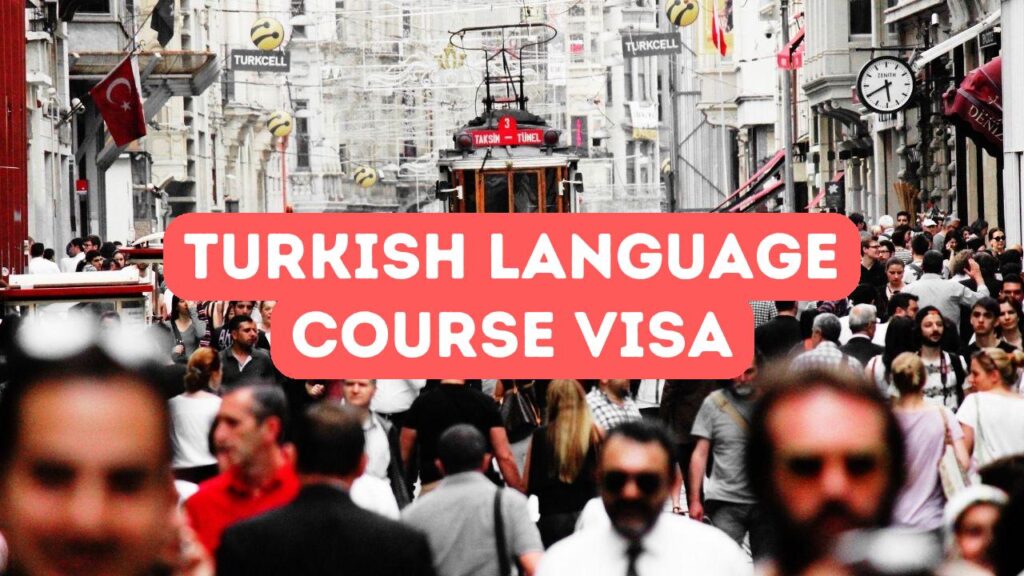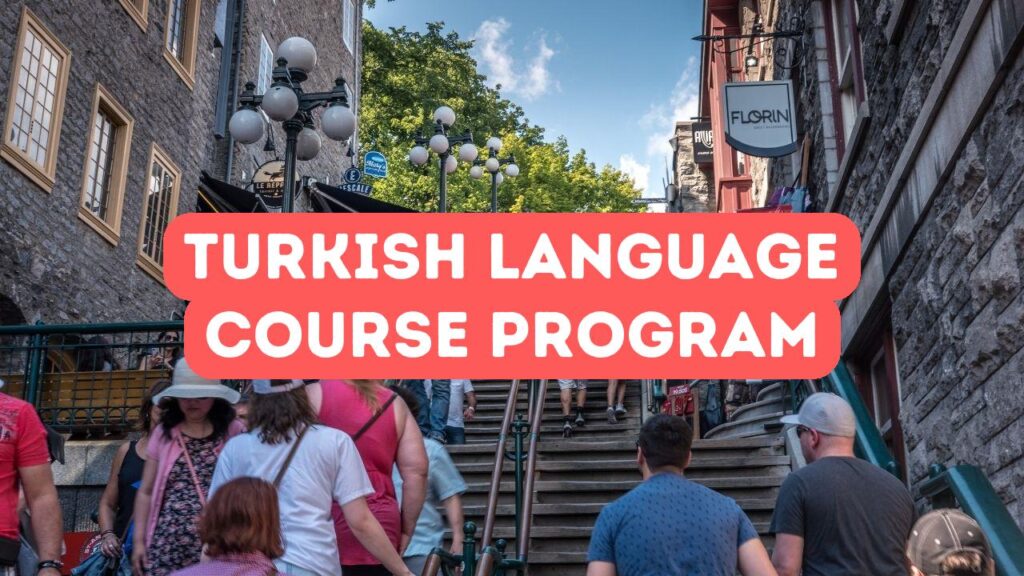Choosing to study in Turkey offers a rich, immersive experience that goes beyond academic learning, as it opens doors to the vibrant culture and history of this unique country. One essential aspect of this journey is mastering the Turkish language, a skill that not only enhances your educational opportunities but also enriches your day-to-day interactions and overall experience. At Campus Turquie, we recognize the importance of language proficiency for international students and provide comprehensive support to help you integrate seamlessly into Turkish society. Whether navigating campus life, engaging with local communities, or exploring Turkey’s diverse regions, becoming conversant in Turkish will undoubtedly amplify the benefits of your study abroad endeavor. Join us as we explore the various facets of learning Turkish and discover how this valuable skill can elevate your educational and cultural immersion in Turkey.
Essential Grammar Rules Explained
When embarking on the journey to learn Turkish, understanding essential grammar rules is crucial for effective communication. Turkish grammar may seem daunting at first due to its unique structure, which is vastly different from many European languages. One key aspect is its agglutinative nature, where suffixes are added to roots to convey meaning and grammatical function. For instance, rather than using separate prepositions, Turkish attaches them as suffixes to nouns. Moreover, Turkish follows a Subject-Object-Verb (SOV) sentence structure, which can initially appear unfamiliar to native English speakers accustomed to the Subject-Verb-Object (SVO) structure. Highlighting these fundamental grammar rules can greatly accelerate your proficiency and ensure you build a solid foundation for more complex language skills.
Another fundamental feature of Turkish grammar is vowel harmony, a phonological process where vowels within a word harmonize to be either front or back, creating a harmonious and easy-flowing sound. This means that the suffixes added to a word must conform to the vowel harmony rules, transforming according to the vowels in the root word. For example, the word “ev” (house) becomes “evim” (my house) due to the back vowel “e,” while “göz” (eye) becomes “gözüm” (my eye) due to the front vowel “ö.” Mastering vowel harmony is essential not only for correct pronunciation but also for writing and understanding spoken Turkish accurately. By grasping this concept, learners can significantly improve their ability to form coherent and natural-sounding sentences, smoothing their pathway to fluency in Turkish.
Additionally, Turkish uses a variety of verb tenses and moods that are marked by adding specific suffixes, which can at times be challenging for new learners. Unlike in English, where auxiliary verbs are used to convey different tenses and moods, Turkish relies on a system of suffixes that modify the verb stem. For instance, the present continuous tense involves attaching the suffix “-yor” to the verb root, as in “geliyor” (coming). The past tense, however, uses the suffix “-di” or its variants depending on vowel harmony, as seen in “geldi” (came). Understanding these suffixes and their appropriate applications is crucial for conveying time and intention accurately in Turkish. With practice and exposure, the regular patterns of Turkish verb conjugations become more intuitive, enabling students to describe actions, emotions, and plans effectively. This syntactic mastery not only facilitates smoother conversations but also enhances comprehension of academic materials and authentic interactions in Turkish settings.
Mastering Turkish Pronunciation
Mastering Turkish pronunciation is one of the first hurdles you will encounter, but it is a crucial step in your language learning journey. The Turkish language boasts a phonetic structure, meaning that words are pronounced exactly as they are spelled. This characteristic simplifies the learning process, allowing new learners to build confidence quickly. Additionally, focusing on key sounds that are unique to Turkish—such as the soft ‘g’ (g), the undotted ‘i’, and the rounded vowels ‘ö’ and ‘ü’—can significantly improve your speaking clarity and comprehension. With repeated practice and exposure, these phonetic nuances will become second nature, significantly enhancing your ability to communicate effectively with native speakers.
To aid in mastering these pronunciations, there are various strategies and resources available that can make your journey smoother. Engaging in listening exercises, such as watching Turkish films or TV shows, and using language learning apps designed with pronunciation guides, can provide consistent exposure to native speech patterns. Additionally, practicing with native Turkish speakers, whether through language exchange programs or one-on-one tutoring sessions, offers invaluable real-time feedback and corrections. Recording and listening to your own attempts can also help you identify areas for improvement and track your progress. As the foundation of effective communication, accurate pronunciation will not only help you be understood but also boost your confidence in everyday interactions.
At Campus Turquie, we understand that clear and accurate pronunciation can be a challenging barrier to overcome, which is why we offer personalized support tailored to your needs. Our experienced language instructors provide specialized pronunciation workshops that focus on the intricacies of Turkish phonetics. These sessions include practical exercises, pronunciation drills, and interactive activities designed to target your specific areas of difficulty. Additionally, we facilitate conversation clubs and cultural immersion activities where you can practice speaking in a relaxed, supportive environment with fellow learners and native speakers. By integrating these resources into your language learning regimen, you will not only master Turkish pronunciation but also gain the confidence to engage deeply with the cultural and social fabric of Turkey.
Cultural Insights Through Language Learning
Learning the Turkish language offers a unique lens through which to view and appreciate the rich tapestry of Turkish culture. By understanding common phrases, idioms, and expressions, you gain insights into the values, traditions, and daily life of Turkish people. This linguistic connection allows for deeper, more meaningful interactions that go beyond surface-level exchanges. Whether participating in local festivals, engaging in heartfelt conversations with new friends, or savoring traditional Turkish cuisine, language proficiency enhances your appreciation and connection to the culture. At Campus Turquie, we emphasize this cultural integration aspect, ensuring that every student not only masters the language but also fully embraces the vibrant life that Turkey has to offer.
Moreover, learning Turkish expands your understanding of Turkey’s historical and literary heritage. Delving into Turkish literature, such as the works of renowned poets like Rumi and Nazim Hikmet, becomes more enriching when you can appreciate the nuances and beauty of the language in its original form. Historical narratives, too, take on new significance when you can read and comprehend them in Turkish, providing a more authentic grasp of the country’s past. Through Campus Turquie’s language programs, you will be equipped to explore these profound cultural artifacts, gaining a deeper, more holistic understanding of Turkey’s legacy and its impact on contemporary society.
Furthermore, mastering the Turkish language enables you to navigate Turkey’s contemporary cultural landscape with confidence and ease. From understanding current affairs through Turkish news outlets to enjoying popular media like television series, music, and social media trends, language proficiency opens up a world of modern cultural experiences. By being able to participate in discussions on current social issues, trends, and innovations, you become an active participant in Turkey’s evolving story. At Campus Turquie, our language programs are designed to keep you engaged with the present-day cultural dynamics of Turkey, ensuring you stay both informed and involved. This proactive cultural engagement not only enriches your academic journey but also fosters lasting connections and unforgettable experiences during your time in Turkey.







